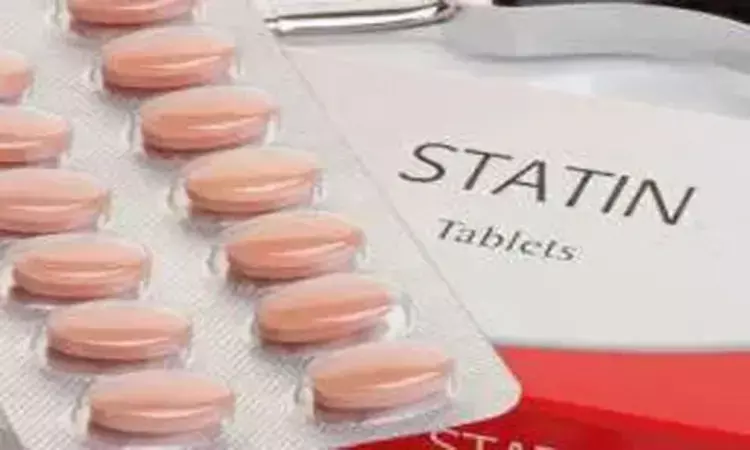- Home
- Medical news & Guidelines
- Anesthesiology
- Cardiology and CTVS
- Critical Care
- Dentistry
- Dermatology
- Diabetes and Endocrinology
- ENT
- Gastroenterology
- Medicine
- Nephrology
- Neurology
- Obstretics-Gynaecology
- Oncology
- Ophthalmology
- Orthopaedics
- Pediatrics-Neonatology
- Psychiatry
- Pulmonology
- Radiology
- Surgery
- Urology
- Laboratory Medicine
- Diet
- Nursing
- Paramedical
- Physiotherapy
- Health news
- Fact Check
- Bone Health Fact Check
- Brain Health Fact Check
- Cancer Related Fact Check
- Child Care Fact Check
- Dental and oral health fact check
- Diabetes and metabolic health fact check
- Diet and Nutrition Fact Check
- Eye and ENT Care Fact Check
- Fitness fact check
- Gut health fact check
- Heart health fact check
- Kidney health fact check
- Medical education fact check
- Men's health fact check
- Respiratory fact check
- Skin and hair care fact check
- Vaccine and Immunization fact check
- Women's health fact check
- AYUSH
- State News
- Andaman and Nicobar Islands
- Andhra Pradesh
- Arunachal Pradesh
- Assam
- Bihar
- Chandigarh
- Chattisgarh
- Dadra and Nagar Haveli
- Daman and Diu
- Delhi
- Goa
- Gujarat
- Haryana
- Himachal Pradesh
- Jammu & Kashmir
- Jharkhand
- Karnataka
- Kerala
- Ladakh
- Lakshadweep
- Madhya Pradesh
- Maharashtra
- Manipur
- Meghalaya
- Mizoram
- Nagaland
- Odisha
- Puducherry
- Punjab
- Rajasthan
- Sikkim
- Tamil Nadu
- Telangana
- Tripura
- Uttar Pradesh
- Uttrakhand
- West Bengal
- Medical Education
- Industry
Moderate statin and ezetimibe combo non inferior to high-intensity statin monotherapy in ASCVD: RACING trial

South Korea: A moderate-intensity statin with ezetimibe combination therapy among patients with atherosclerotic cardiovascular disease (ASCVD) is non-inferior to high-intensity statin monotherapy, according to results from the RACING trial.
The non-inferiority in the study published in The Lancet was seen with regard to the 3-year composite outcomes with lower intolerance-related drug discontinuation or dose reduction and a higher proportion of patients with LDL cholesterol concentrations of less than 70 mg/dL.
Previous studies have suggested that drug combinations rather than increasing doses of one drug can achieve greater efficacy and lower risks. Thus, moderate-intensity statin with ezetimibe combination therapy as an alternative to high-intensity statin monotherapy can lower LDL cholesterol concentrations effectively while reducing adverse effects. However, there is a need for evidence from randomized trials to compare long-term clinical outcomes.
To fill the knowledge gap described above, a research team from South Korea led by Prof Byeong-Keuk Kim performed an open-label, non-inferiority trial that included patients with atherosclerotic cardiovascular disease at 26 clinical centers in South Korea. They were randomly assigned in a ratio of 1: 1 to receive either moderate-intensity statin with ezetimibe combination therapy (rosuvastatin 10 mg with ezetimibe 10 mg) or high-intensity statin monotherapy (rosuvastatin 20 mg).
The primary endpoint was the 3-year composite of cardiovascular death, non-fatal stroke, or major cardiovascular events in the intention-to-treat population with a non-inferiority margin of 2·0%.
Key findings include:
· 3780 patients were enrolled between Feb 14, 2017, and Dec 18, 2018: 1894 patients in the combination therapy group and 1886 in the high-intensity statin monotherapy group.
· The primary endpoint occurred in 9·1% of patients in the combination therapy group and 9·9% of patients in the high-intensity statin monotherapy group.
· LDL cholesterol concentrations of less than 70 mg/dL at 1, 2, and 3 years were observed in 73%, 75%, and 72% of patients in the combination therapy group, and 55%, 60%, and 58% of patients in the high-intensity statin monotherapy group.
· Discontinuation or dose reduction of the study drug by intolerance was observed in 4·8% of patients and 8·2% of patients respectively.
"Moderate-intensity statin with ezetimibe combination therapy among patients with ASCVD was non-inferior to high-intensity statin monotherapy for the 3-year composite outcomes," wrote the authors. "with a higher proportion of patients with LDL cholesterol concentrations of less than 70 mg/dL and lower intolerance-related drug discontinuation or dose reduction."
Reference:
The study titled, "Long-term efficacy and safety of moderate-intensity statin with ezetimibe combination therapy versus high-intensity statin monotherapy in patients with atherosclerotic cardiovascular disease (RACING): a randomised, open-label, non-inferiority trial," was published in The Lancet.
DOI: https://doi.org/10.1016/S0140-6736(22)00916-3
Dr Kamal Kant Kohli-MBBS, DTCD- a chest specialist with more than 30 years of practice and a flair for writing clinical articles, Dr Kamal Kant Kohli joined Medical Dialogues as a Chief Editor of Medical News. Besides writing articles, as an editor, he proofreads and verifies all the medical content published on Medical Dialogues including those coming from journals, studies,medical conferences,guidelines etc. Email: drkohli@medicaldialogues.in. Contact no. 011-43720751


